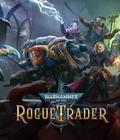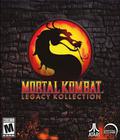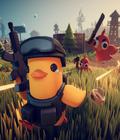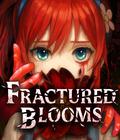The original Habroxia was released about two years ago, and if the critics listed on the aggregate sites are to be believed, the title was average at best. The presentation looks like it came from early in the 16-bit era, the shooting was straightforward, and the game didn't seem to last very long despite the number of modes. In a genre that was making a comeback at the time, it didn't do anything to stand out in the crowd. A sequel suggests that the game did well enough to warrant one, and those who didn't care for the first game will find that Habroxia 2 is completely different. In some cases, it's much better than the original.
It's a familiar tale for shoot-'em-ups. Over 25 years have passed since the events of the first game, and the humans in the galaxy have lived in relative peace. Still fearful that the alien forces are poised to return, the armed forces send out a scouting party. The team return safely, except for one pilot. As Sabrina, daughter of the missing scout, you take it upon yourself to get a ship and look for your father.
The story is told initially through the game's opening text crawl and a brief tutorial level. From here, the story becomes completely optional as the only other way to catch up on the narrative is to read the journal entries that appear after beating a level. For those interested in plot, there's not much here that warrants a read through so while it is nice that it still exists, making it completely optional instead of something you have to skip through is better for everyone else.
Compared to the first game, the shooting mechanics are completely revamped in Habroxia 2. The most noticeable change is the move to a twin-stick shooting system instead of the more traditional forward-facing one. It isn't used often in space shoot-'em-ups, but the level of freedom is enough to cause at least one other change with the shooting mechanics. The separate left and right weapons system is still there, for example, and it gets some good use as a secondary weapons system, with things like small-scale bombs. The previous game's spread mechanic, which was activated by hitting both buttons, is gone. The game still lets you pick up a few other weapons, such as a large laser blast or an orbital shield, but those can only be used once. You can now perform a boost charge to ram both enemies and destructible obstacles without penalty. Both the boost charge and the secondary weapons require cooldown times, so players will need to constantly juggle weapons to survive.
"Survive" is the key word, as the game takes a quasi-bullet hell approach. Enemies dart in and out from all angles, which puts the twin-stick mechanics to good use. There isn't a small hitbox on your ship, so there's more work required to dodge enemy fire. You have a health bar, so you can take a good number of hits before dying, but you only have one life, and death means starting over. Boss fights mark the end of every stage, but there are a few extras, such as the chance to pick up stranded astronauts or aim for a specific bounty target to kill.
The approach means that the difficulty level can quickly ramp up just as you're coming to grips with it. The store system, the number of credits spilled on the battlefield, and the bonus credits earned for completing objectives help to give permanent power-ups to the ship, whether it's in the form of extra health or boosts to firing damage and speed. However, the upgrade prices increase as you go, and you'll need to spend some serious coin before seeing tangible improvements, so the game reaches a point where grinding is almost unavoidable. Losing still yields credits, and the grind to become formidable isn't insurmountable, but it is something to look out for.
The good news is that Habroxia 2 lets you return to older levels to grind and accomplish any objectives you may have missed. The better news is that a good number of the levels feature alternate paths, which lead to lengthy shooting segments and different boss fights. Alternate levels provide more choices for progression, so you aren't stuck grinding to pass one level. It isn't a very wide branch, but there are enough to make the campaign quite lengthy if you wanted to completely beat it all.
Once the campaign has been completed, more than a few modes are unlocked. Boss Rush mode is exactly as expected, but it gets amplified if you get through it the first time around, as you tackle more enhanced versions of the bosses. Boost Rush presents players with a different challenge by removing all enemies; your boost is permanently on, and you have to avoid all sorts of obstacles. Both are good, but the most engaging mode is New Game Plus, which has you replaying the campaign with every enemy boosted to their highest difficulty level. Considering how long and difficult the main campaign is, this mode is a strong argument for grinding to fully power yourself up.
If the original's presentation can be called a homage to the early 16-bit era, then the sequel certainly takes more inspiration from the middle portion of that generation. The backgrounds get the most love, as each one is now distinct instead of a typical starfield, and there seems to be an extra level of parallax scrolling to give scenes more depth. Everything else goes in the realm of touch-ups, as there seems to be more color on your ship and enemies, and the explosions have a hint of more color to them. The sound is still quite good, with chiptune tracks on every stage. While the tracks are short, the loops aren't too noticeable since you'll pay more attention to the gunfire.
At the very least, Habroxia 2 is a very solid shoot-'em-up thanks to the number of elements that it manages to mash together quite well. The merger of bullet hell and twin-stick shooter in this kind of environment feels distinct, and there's some good depth to the shooting mechanics due to the options at your disposal. The branching pathways give the campaign some legs, since you have some incentive to uncover all of the pathways, and the new modes feel like more significant reasons to keep playing after the campaign is done. For shooter fans, Habroxia 2 is a great game to play and a good turnaround from the team's first efforts.
Score: 8.0/10
More articles about Habroxia 2










 In Habroxia 2, blast off for a sequel that pushes every facet of 2D shoot-'em-ups to escape velocity!
In Habroxia 2, blast off for a sequel that pushes every facet of 2D shoot-'em-ups to escape velocity!








